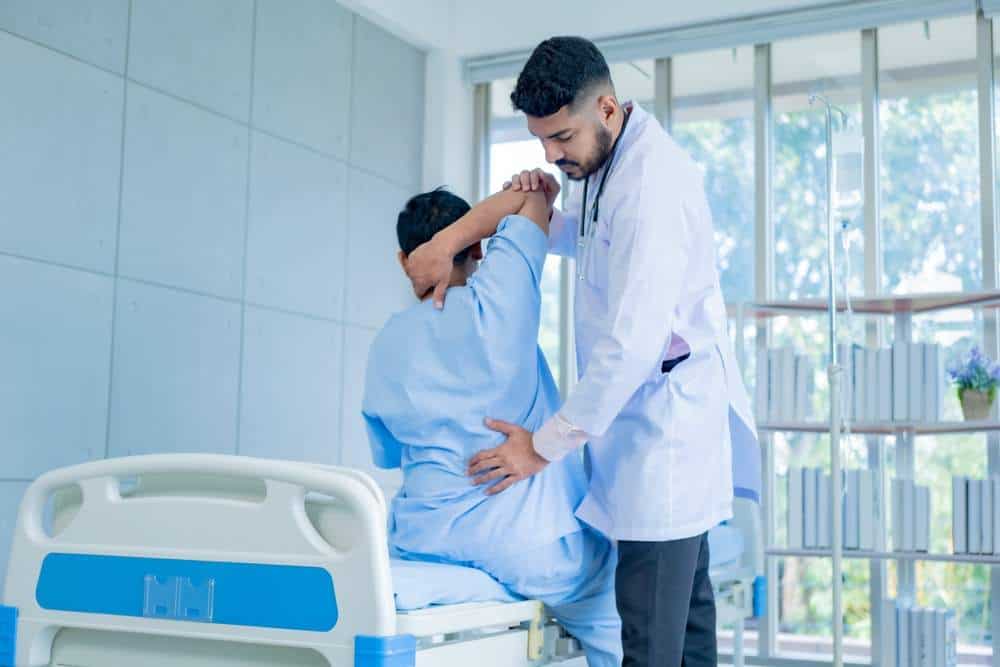Experiencing a car accident can be one of the most traumatic events in a person’s life, not just emotionally but physically. Often, the physical aftermath includes chronic pain that can persist long after the accident. This takes a toll on daily life, limiting mobility and even affecting mental health. However, it’s important to know that chronic pain after a car accident isn’t a life sentence. With the right approach, including treatments from car accident doctors, managing and even alleviating this pain is entirely possible.
From Whiplash to Backaches: Common Types of Chronic Pain After a Collision
Car accidents can unleash a host of injuries, many of which may not be immediately apparent. Over time, these injuries can evolve into chronic pain conditions.
- Whiplash: This injury occurs when the head is suddenly jerked forward and then backward, stretching and tearing the muscles and ligaments in the neck. Symptoms can include neck pain and stiffness, headaches at the base of the skull, dizziness, and sometimes blurred vision. Whiplash can also result in chronic pain if not properly treated, as the soft tissues can become permanently damaged.
- Back Pain: The impact of a car accident can cause various back injuries, including herniated discs, spinal fractures, and strains. These injuries can lead to chronic lower back pain due to the damage or displacement of vertebrae and discs, affecting nerve function and muscle strength.
- Neck Pain: Apart from whiplash, neck injuries can involve nerve damage, disc injury, and muscle strain. Chronic neck pain may arise from the prolonged strain, misalignment of the spine, or nerve compression, requiring a targeted approach to alleviate symptoms.
- Neuropathic Pain: When nerve fibers are damaged in a car accident, they may send incorrect signals to pain centers, resulting in a chronic condition characterized by shooting, burning, or stabbing pain. This type of pain can be particularly challenging to manage because it often doesn’t respond to traditional pain treatment methods.
- Headaches and Migraines: Post-traumatic headaches or migraines can occur after a car accident, often resulting from brain injury, neck injury, or the stress of the event. These headaches can persist long-term, significantly affecting an individual’s daily life.
Understanding these conditions is crucial for effective management and recovery. Each type of pain has its underlying causes and may require different treatment approaches.
Comprehensive Treatment Options for Chronic Pain After Car Accident

Managing chronic pain after a car accident requires a combination of treatments, specifically tailored to meet your unique needs. It’s important to work closely with a health professional to determine the best treatment plan for you.
- Medication: Utilizing both over-the-counter pain relievers (like ibuprofen or acetaminophen) and prescription options (including muscle relaxants and anti-inflammatory drugs) can significantly reduce inflammation and pain.
- Physical Therapy: Custom exercise programs from physical therapists enhance muscle strength, flexibility, and joint mobility. Techniques like ultrasound and heat therapy aid in healing and pain reduction.
- Chiropractic Care: Chiropractors provide relief and restore function through spinal adjustments, particularly beneficial for musculoskeletal issues.
- Acupuncture: This technique stimulates the nervous system, encouraging the body to release natural painkillers and improve circulation for pain relief.
- Pain Management Programs: Integrating medication, physical therapy, and counseling, these programs aim to enhance the quality of life for those with chronic pain.
- Massage Therapy: A method for easing muscle tension, improving blood flow, and lowering stress, contributing to overall pain reduction
- Occupational Therapy: Helps individuals adjust daily activities to minimize strain and improve functionality, incorporating pain management techniques.
Learn more about Which Doctor to See After a Car Accident
Beyond Pain Management: Tips for Living Well with Chronic Pain
Adapting to life with chronic pain is more than just managing symptoms. It involves a holistic approach to enhance your overall well-being. With these tips, you’ll find yourself better equipped to conquer chronic pain.
Embrace Stress Management
Since stress can amplify chronic pain, integrating stress-reduction practices like deep breathing, meditation, and mindfulness into your day can offer a peaceful respite for your mind, easing tension and possibly making the pain feel more manageable.
Nourish Your Body and Soul:
A lifestyle that includes a nutritious diet, gentle physical activity, and ample sleep plays a significant role in chronic pain management. Nourishing your body reduces inflammation, while exercise and rest bolster your strength and resilience against pain.
Discover Gentle Movement
Gentle forms of exercise, such as yoga and tai chi, not only benefit your physical health but also bring peace to your mind. These activities promote flexibility and balance, providing a serene escape from the discomfort of chronic pain.
Cultivate Positivity and Connection
Keeping a hopeful spirit and surrounding yourself with supportive friends, family, and groups can offer emotional comfort. Finding community with those who truly understand your experience can be incredibly reassuring, giving you a source of comfort, advice, and encouragement.
Incorporating these strategies into your routine can make a meaningful difference in your experience with chronic pain, opening the door to a life filled with more joy and less discomfort. Remember, taking small steps towards these goals can lead to big changes over time.
Partnering with ProCare for Your Recovery
At ProCare Medical Center, we understand the complexities of chronic pain following car accidents. Our team of car accident doctors, including primary care providers, chiropractors, neurologists, orthopedists, and pain management specialists, are equipped with the knowledge and skills to provide quality care tailored to your unique needs.
We believe in a comprehensive approach to pain management, combining various treatment options to find what works best for you. Beyond treating your injuries, we’re committed to educating you on how to care for your body and prevent future injuries. Whether you’ve experienced a mild or severe car accident injury, you deserve a treatment plan that’s right for you.
If you’re struggling with chronic pain after a car accident, don’t face it alone. Schedule a consultation with one of our car accident doctors. Let us be your partner on the road to recovery.



